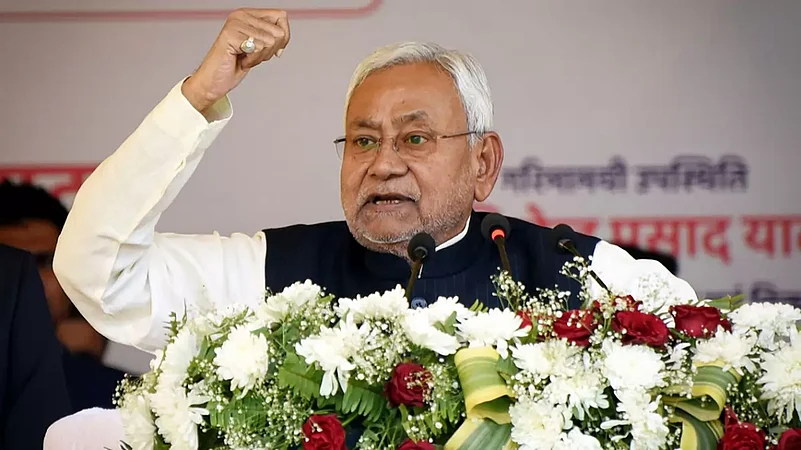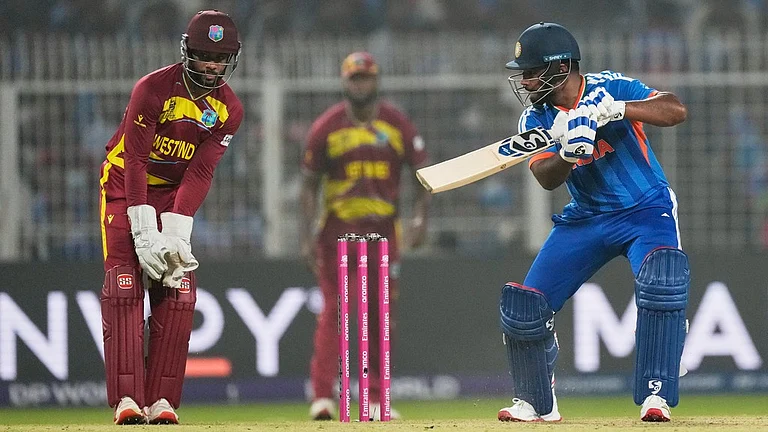Bihar Chief Minister Nitish Kumar on Wednesday alleged that poor states were being prevented by the Narendra Modi government at the Centre from marshalling resources through borrowing. The JD(U) leader, who snapped ties with the BJP less than six months ago, expressed dismay at the "interference" from the Centre which, he asserted, was "never seen before".
He was replying to queries from journalists about expectations from the upcoming Union budget. "What can one expect,” quipped Kumar, pointing out that his demand for greater central assistance and special status to Bihar was never met.
Asked whether things have changed for the worse since his exit from the ruling alliance at the Centre, Kumar did not give a direct reply but said, "They were not helping the state when we were together. They are doing the same now. I wonder how they think of developing the country without developing the poorer states.”
“They are hardly doing anything except propaganda (‘prachar prasar’). Their attention is limited to only those places where they are eyeing some political benefit. They seem to be overestimating their political gains, though,” said the longest-serving CM of Bihar, who has been calling for a united opposition to take on the BJP in the Lok Sabha polls next year.
"Poor states like us are left to fend for themselves. Earlier, we used to make up for lack of central help by borrowing. That, too, has been stalled. Never have we seen this type of interference,” added Kumar. Although he did not elaborate, the chief minister made the statement apparently referring to the proposed cap on states' borrowing to 3.5 per cent of GDP from the next fiscal.
Replying to another query, the former railway minister reiterated that the department's separate budget should be revived. "Railway budget used to be such a massive affair. Members in both Houses of Parliament devoted more time debating it than the general budget. In a way, modern Indian economy has its roots in Railways, which were introduced by the British,” he said.


























